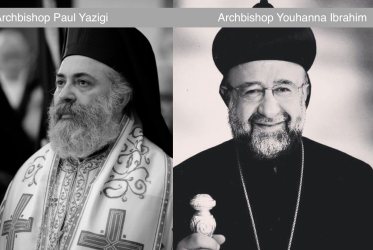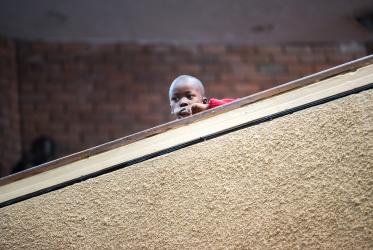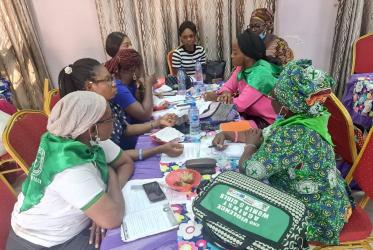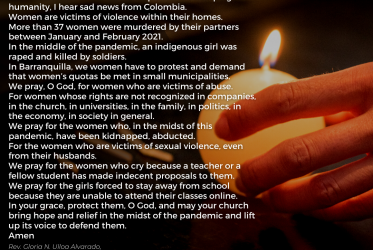Displaying 1 - 20 of 39
04 April 2024
WCC renews call for release of archbishops of Aleppo
28 February 2022
Nigerian churches train women and girls on human rights
20 December 2021
Empowering women - key in addressing religious extremism in Asia
18 December 2020
WCC calls for end to violence in South Sudan
07 August 2020
Yet another sad anniversary for Christians in war-torn Syria
17 October 2018
WCC calls for release of archbishops of Aleppo
27 June 2018
In Argentina, stirring journey for human rights continues
01 September 2017
Rebecca Dali: My faith in God motivates me every second
24 August 2017
Displaced Iraqis appeal for security and tolerance
17 September 2014















